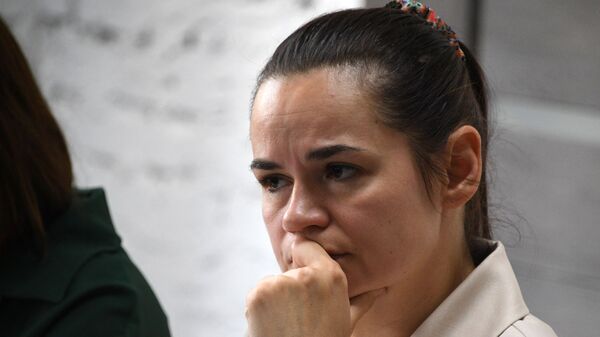Biegun "assured me that he, as a person, and the American people, will do their best to support us and to help us in this situation," Tikhanovskaya said commenting on a meeting with Biegun.
She called their conversation "wonderful and kind."
Svetlana Tikhanovskaya said in an interview that no one should interfere in the situation in Belarus.
"Our people want to live in a democratic country," Tikhanovskaya said.
"No one country should influence the decision of our people," she said.
On Tuesday, Russian Foreign Minister Sergey Lavrov also met with Biegun. Lavrov pointed out to the US assistant secretary of state that forces from abroad were trying to provoke violence in Belarus to cause an appropriate reaction by law enforcement agencies, and called the situation dangerous. The Russian Foreign Ministry also warned the US and the EU against any form of interference in the internal affairs of Belarus, including calls for anti-government demonstrations.
After an official loss in the presidential elections in Belarus, Tikhanovskaya left for Lithuania. On Monday, she met with Biegun and announced her readiness to resolve the political crisis in the republic through a dialogue on the peaceful transfer of power and openness to mediation by international organizations.
Earlier, Lavrov, at a meeting with Biegun in Moscow, said attempts of sanctions and political pressure on Minsk were inadmissible.
On 9 August, incumbent leader Alexander Lukashenko won the presidential elections in Belarus for the sixth time - according to the Central Election Commission, he gained 80.1 percent of the vote. The opposition claims that Tikhanovskaya, not Lukashenko, won the election.
Mass opposition protests began across Belarus after the presidential elections. In the first days, the rallies were crushed by law enforcement officers: tear gas, water cannons, stun grenades and rubber bullets were used against the protesters who did not agree with the election results.
Then the law enforcement agencies stopped dispersing the rallies and using force. In line with official data, over 6,700 people were detained in the first days. According to the Interior Ministry, hundreds of people were injured during the riots, including more than 120 law enforcement officers. Three protesters have died.


